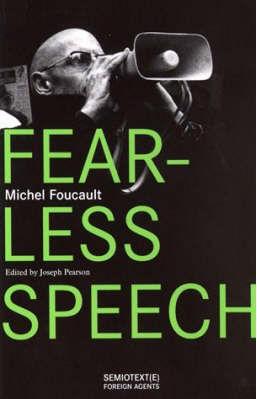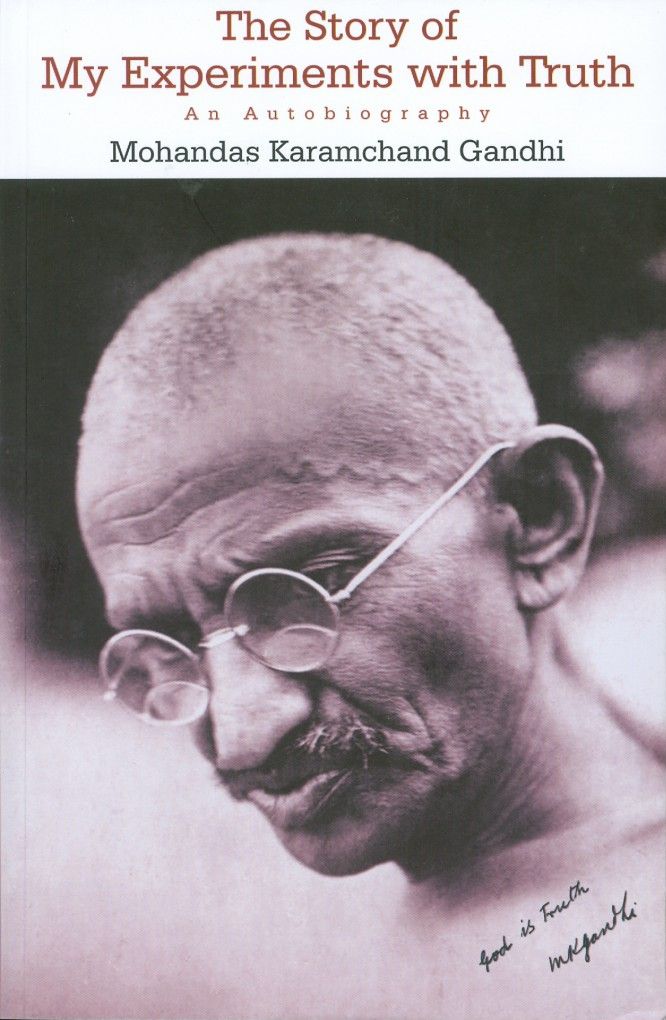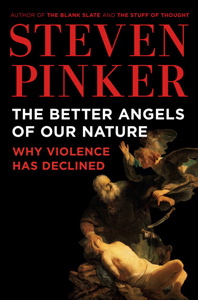Author Archive: Max Cooper
MAX COOPER writes on Indian Philosophy and Religion, Buddhism, Hinduism, Comparative East-West Philosophy, American and English literature, and Gandhian studies. Much of his work can be found at his academia.edu page.
by Max Cooper

Logo courtesy practicingparrhesia.tumblr.com
We noted in two previous essays comparing Gandhi and Foucault that our study was apparently the first specifically to compare the lives and philosophies of Mahatma Gandhi and Michel Foucault, and the first to suggest Gandhi as Foucault’s wished-for modern exemplar of the Hellenistic ideals of epimeleia heautou and parrhesia. Considering the mass of scholarship relating to the work of Foucault, and indeed the vast and meticulous output of the academic enterprise generally, it seems curious that we should be the first to draw these connections. This afterword will briefly inquire as to why this should be the case. Suggesting that possible concerns with our claims (Gandhi as exemplifying epimeleia and parrhesia) are generally unfounded, we will propose that this small lacuna rather reflects a greater and more troubling chasm between Eastern and Western philosophy in contemporary academia. We hope, therefore, that further projects may span the gap between two ancient traditions of human wisdom.
by Max Cooper
Editor’s Preface: This essay is the second of three by Max Cooper comparing similarities between Gandhi and Michel Foucault. The first we posted 1 June and can be accessed via his Author’s Page, by clicking on his byline. Part Three will follow in a few days. Please also consult the Editor’s Note at the end for biographical information. JG

Cover art courtesy Semiotext(e)
We will here explore Foucault’s interests in the final years of his life in two particular ethico-spiritual practices native to ancient Greek and Hellenistic philosophy: epimeliea heautou, the care of the self, and parrhesia, fearless truth-telling. Foucault saw such disciplines as important foundations for an ethical life; lamenting that such foundations could not be found in the modern age, he wished to draw attention to these practices in the hope that they might somehow be revived. We will argue here that Foucault need not have looked back over two thousand years to the ancient Greeks and Hellenes for examples of these practices, but could have found virtually identical practices in the life of Gandhi in his own century. We will suggest ultimately that Gandhi represented precisely the modern practitioner of epimeleia heautou and parrhesia that Foucault was looking for.
Examining certain classicist scholars’ criticisms of Foucault on his interpretation of these practices, we will entertain the striking possibility that Gandhi may have come closer to exemplifying these ancient practices and beliefs than Foucault did to explaining them. Next, we will examine Foucault’s intriguing distinction between ancient and modern philosophy as pertains to the care of the self: most ancient philosophers, Foucault suggested, viewed the attainment of knowledge as possible only after one had performed painstaking preparatory work on oneself; this often took the form of particular “spiritual practices.” Foucault felt that modern philosophy since Descartes had lost this emphasis on preparation for knowledge, to its own great detriment. We suggest that Gandhi, through his rigorous programme of self-purification performed with the goal of realizing Absolute Truth, embodies almost precisely the characteristics of epimeleia heautou that Foucault drew attention to in his classical sources: again, Foucault could have taken heart in Gandhi’s example.
by Max Cooper

Poster art, courtesy indorigins.com
It may seem surprising that no significant study has as yet compared the lives, works, and ideas of Mahatma Gandhi and Michel Foucault. (1) Foucault (1926–1984), a French political and social theorist, and Gandhi (1869–1948), the saintly Indian political leader, initially appear to have very little in common, and indeed strike us as intellectual opposites. Gandhi was a deeply religious man who committed at least an hour each day to prayer and meditation; Foucault was a committed atheist who resented his bourgeois Catholic upbringing and blamed religion for much of the malaise afflicting modern man. Gandhi believed that human society and relationships could be transformed through individual hard work, selfless kindness, and love; Foucault was concerned to draw attention to hidden motivations of power in all social relations, and emphasized the often powerless positions of individuals vis-à-vis larger institutional structures. Gandhi fasted regularly, never took food after sunset, and upheld a vow of strict brahmacharya (celibacy) for the last 38 years of his marriage; Foucault maintained a fascination with intense sensory experiences, ever seeking stronger sensations through drugs and sex, and explored his interest in sexual pleasure in his final and definitive works, the three volume History of Sexuality. The reader could be forgiven for thinking that two more different men could hardly be found.
by Max Cooper

Cover art courtesy stevenpinker.com
Amongst the scores of letters he attended to every day, Mahatma Gandhi responded to one V.N.S. Chary, on April 9, 1926. Chary’s original letter does not survive, but we may reconstruct from the Mahatma’s response that he raised a particular existential question that has long troubled many practitioners of nonviolence: Is overcoming violence really possible? Is violence not simply an ineluctable feature of embodied existence and human nature? Questions in this spirit have a long history, having been explored by thinkers such as Heraclitus, Freud, Nietzsche, and others, who have often emphasized the essential duality of worldly existence – of the mutual necessity of opposites – for good to exist, so must evil; to know peace, perhaps we must know violence.
In his letter, Mr. Chary appears to have cited examples from the animal world: Hawks eat snakes; snakes eat lizards; lizards eat cockroaches, who themselves eat ants. This violence is simply natural, and it occurs perhaps for a greater good. If beings did not eat other beings, life on earth would not be possible. Beyond Chary’s points, we might also reflect that even our own human bodies are unavoidably violent; besides periodically crushing or inhaling insects unawares, our own white blood cells are constantly exterminating malignant bacteria; if they failed to kill these bacteria, we would die. Is violence not necessary for life, and should we not see it as unreasonable, or indeed impossible, to hope for a renunciation of violence?
